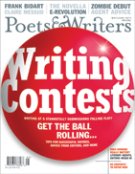Reagan Arthur, an editor at Little, Brown who for several years had her own eponymous imprint, was promoted to publisher at the house in April, succeeding Michael Pietsch, now CEO of Little, Brown’s corporate parent, Hachette Book Group. Arthur recently spoke about her new role and the health of the company she now leads through these uncertain times in publishing.
How will you handle your transition from an editor at Little, Brown to top dog?
That’s my official title. [Laughs.] It won’t be an absolute transition because I’ll still be an editor, and continue to work with many of my authors.
 In your previous role, which things are you particularly proud of?
In your previous role, which things are you particularly proud of?
Working on the novel Then We Came to the End [by Joshua Ferris] was one of my very happiest publishing experiences. It was a novel I loved, and a National Book Award finalist, which was exciting. Working on Elizabeth Kostova’s The Historian, the first debut novel to land at number one on the New York Times best-seller list, was really fun. To publish something in a big, bold way like that, and see it work, was a great adventure. And Tina Fey’s book, Bossypants, was also a total joy.
In your new role, what will you concentrate on?
Michael Pietsch has put in place an amazing staff here, everybody from editors to marketers to publicity to the art department, so there’s nothing I have to undo or redo. It’s already a great machine. I’ll be looking at new ways to do fiction in this new landscape, where there are so many new ways for us to be talking about books and finding readers. But for the time being, I’m most excited about working with the writers we have on the list and finding others we can grow in similar ways.
What do you hope Bookish.com, launched recently by Hachette, Simon & Schuster, and Penguin Group, will accomplish?
I think it’s going to be a better way to help people find books they love. As opposed to a site that brings you all kinds of things, this one is curated by other readers. So if you like [Paula McLain’s] The Paris Wife, say, Bookish will help you find books like it. It will be a reliable recommender of books, and also a place for readers to discuss books.
A lot of writers and readers are worried about the state of the publishing industry. Can you reassure us?
I feel very optimistic about the world of publishing and about books and writing. First of all, publishers now have so many ways to reach readers that we never had before. It used to be that you couldn’t order books online, or read books electronically. Access is much easier, and so is hearing about books. For a while, you know, it got harder, because book-review sections kept getting cut. Readers and reviewers and writers have had to find different ways to communicate with each other, but I see that happening every day in really exciting ways. I know more booksellers than I ever did before, because I know them on Twitter and Facebook. At first I think we all worried that those formats seemed trivial or time-wasting, but it’s turned out to be quite the opposite. I think they’re forms of community building, replacing a community we had lost with the decline of independent bookstores and book-review sections.
What’s the financial health of Little, Brown?
We’re doing quite well. We just had a big year, including three debut novels on the New York Times best-seller list: The Snow Child by Eowyn Ivey, The Lifeboat by Charlotte Rogan, and The Yellow Birds by Kevin Powers. That says something not only about the health of the company but about the appetite for literary fiction in the marketplace. We’ve had a good streak, and I want to keep it going.
Kevin Nance is a contributing editor of Poets & Writers Magazine.








